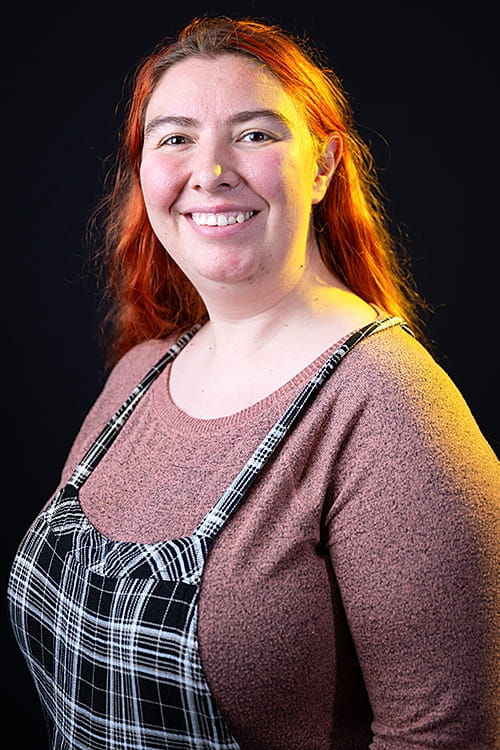
Brittany Anderson, PhD student, anthropology
Improves biosecurity in care facilities
“Ms. Anderson’s work will make a significant impact on policies and practices to improve safety for both residents and staff in nursing homes. She is a meticulously careful ethnographic researcher who has shown extraordinary resilience adapting to pandemic challenges, switching her dissertation research from Sierra Leone to Iowa.” -Elana Buch, associate professor, anthropology
Hometown: Sparta, Wisconsin
Faculty mentor/advisor: Ted Powers, PhD, associate professor, anthropology, and Elana Buch, PhD, associate professor, anthropology, College of Liberal Arts and Sciences
What is your degree program and expected graduate date? Doctorate in Anthropology, Spring 2024
Please describe your research: My doctoral research explores the relationships between biosecurity-based policy and care labor in long-term care facilities in the Midwest. Specifically, I work with housekeeping and laundry staff to understand their changing experiences and perspectives on their care labor and roles in the ongoing COVID-19 epidemic. This includes their implementation of, and changes to, infectious disease and biosecurity policy at local, state, and federal levels.
In simple terms, why does this research matter? Within a broader context, this research contributes to our understanding of the effects of COVID-19 on the care industry, and the ways in which biosecurity, necessary to combat, respond, and prevent infectious disease spread, are implemented and understood. By focusing on how individual labor and care choices are (or are not) changed by understanding pandemic and infectious disease risk, this research adds to a broader body of the epidemic response in the workplace and healthcare.
How soon after starting at the University of Iowa were you able to participate in research? I started participating in research during my first summer of graduate school in 2017, conducting my master’s research into the long-term effects of quarantine experienced during the 2014-2016 Ebola outbreak in Sierra Leone.
What are your career goals and/or plans after graduation? After graduation, I want to continue to contribute to our understanding of infectious disease and epidemic response, working better to understand the consequences and effects of policy and choice. It’s less about the specific position, whether in academia, industry, or government, but rather continuing to improve our understanding and response to future epidemics.
Banner location: not on display—
